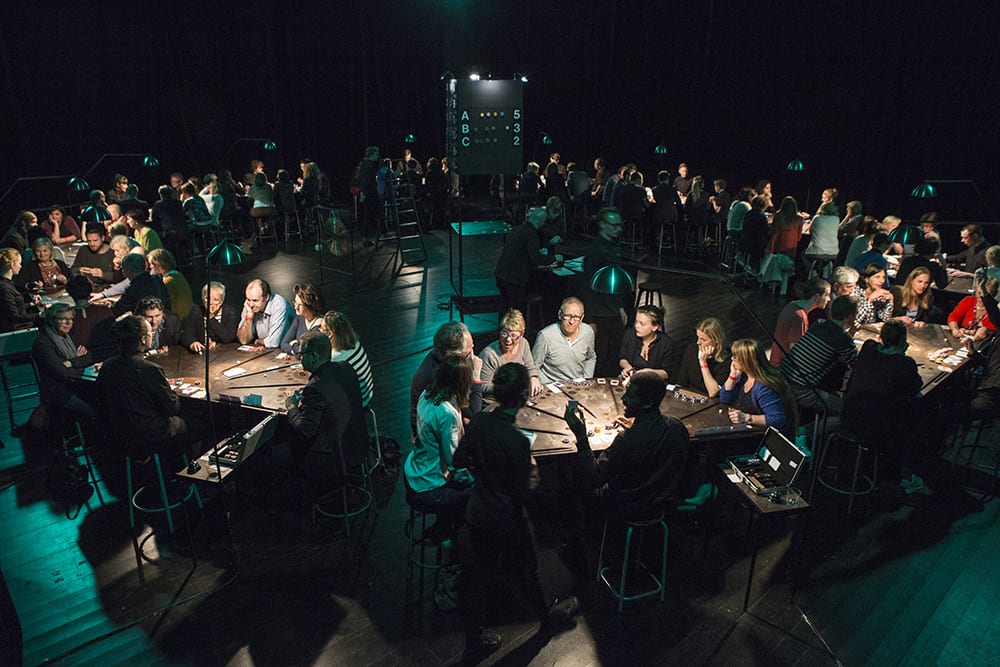£¥€$ (LIES) starts with everyone being allocated to a gambling table. The croupiers portion out gambling chips for each person, where everyone represents an investment sector of a government: Costa del Keith, Arnold Coast, etc – the territories are named in honour of the first person to sit down at the table.
£¥€$ (LIES) draws attention to the reality that money is immaterial. After all, a £5 note states ‘I promise to pay the bearer on demand the sum of five pounds’ – five pounds of what exactly? This interactive theatre is about what happens when the faith in money starts to wane, so when notes can’t deliver on this promise, they are revealed to be merely paper and ink. The show is designed to mirror the 2008 banking crisis. The premise is masterfully executed and you find yourself full of stress and consternation when the chips are down (pardon the pun). The palpable tension is backed by a crescendo of synth; the music climaxes as the scales fall from your eyes.
£¥€$ (LIES) calculates the profits and loses of territories in real time. The smiling faces of the croupiers (the national banks) are inviting to begin with: you win money by betting on the roll of a dice. The stakes increase as time marches on: 1:1, 2:5, 5:15 – the last one meaning that if you bet five chips (£5 million), then you can end up with fifteen chips (£15 million). However, variables are introduced into the arena: bonds, loans, shorts and mergers. There’s quantitative easing and fractional reserve banking going on to promote wealth, but these things can turn sour: picture people in Zimbabwe paying for bread with wheelbarrows full of cash.
The success of your territory becomes intertwined with the interests of the central bank. It seems that there is no neutral party anymore – all rely on each other, so loss must be avoided at all costs. As chips are exchanged for loans, government bonds and foreign bonds, the whole currency system begins to be polluted. The simplicity of a smaller industry is obscured and bigger seems better. However, being Goliath creates the danger of a monumental fall.
By the end the money being exchanged isn’t real – bonds that have replaced chips are built on crumbling trust as everyone rushes to cash them in. The resources are non-existent; the gold vaults are empty yet money keeps being printed. £¥€$ (LIES) is a game of smoke and mirrors, but as the façade drops the banks are sent spiralling back to square one. The central bank totals up the losses and the deficits are truly hideous – hundreds of millions of pounds have been lost in each territory. It becomes difficult to keep track of who owns what and how the circumstances collapsed so quickly.
The beauty of £¥€$ (LIES) is in its design. Devriendt has made something truly genius and original. You don’t have to know anything about accounts or economics to appreciate the experience. The important thing that you take away from the evening is just how rapidly markets can implode; £¥€$ (LIES) is extremely well thought out and immersive in that respect.

